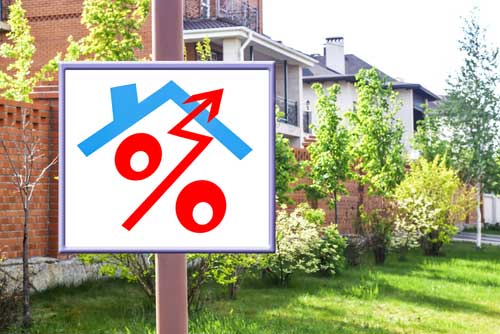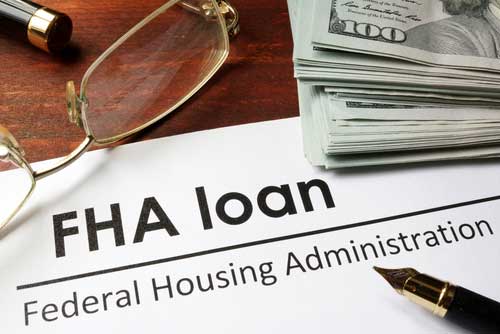Compare The Best Mortgage Rates in Illinois

Compare Illinois Mortgage Rates
When looking to buy a new home, it is important that one is well equipped with the necessary information. It helps, in the long run, to reduce the cost of transacting. Therefore, getting the best mortgage rates is of paramount importance. Needless to say, affordable rates are also important to those seeking to refinance their current home loans. MyRatePlan endeavors to assist you in finding the best mortgage rates in Illinois.

Finding the Best Mortgage Rates in Illinois
Most of the population does not have enough cash on hand to buy a house outright. A loan is most likely one of the first priorities when one is looking to purchase their house in Illinois. Even houses that start at $50,000 will require being approved for a loan for most people. You'll want to know exactly what you will need in order to get a home loan and what types of issues will influence the interest rate you are given. Since you want the lowest interest rate possible, make sure you shop around for the best option.
So how do you make sure you get the lowest interest rate on the market yet still land the house of your dreams? Let's take a look at how to do it. Many real estate agents will provide you with preferred lenders that he or she has done business with before after you find a home that you are interested in. It may sound like the easy way out but many times it isn't. Some real estate agents simply want to move the house as quickly as possible. This may mean the lenders they refer you to may have higher interest rates but will approve you quicker. You may want to get your house quickly, but don't get pushed into a lender that offers only high-interest rates just to save a few weeks. No matter what company you use, check their rates out online to make sure you are comparing every little detail. Using MyRatePlan's mortgage rate tool is the best place to start when you want the lowest interest rate possible.

Different Types of Mortgages on the Market in Illinois
Since different types of buyers have different mortgage needs, there are many different home loan products out there. Two important mortgage types every borrower needs to understand are fixed-rate mortgages and variable mortgages.
When a home loan has one interest rate throughout its entire term, no matter the length, then it's a fixed-rate mortgage, which got that name because the interest rate is fixed in place. Since the interest rate never changes, the monthly payment amount doesn't either, and the borrower will always know what their monthly payment is going to be. This is true even if they have a 30-day mortgage. Fixed-rate mortgages tend to be a smart, low-risk option, because the borrower doesn't need to worry about their interest rate increasing and suddenly having a higher home payment every month as a result.
The other option is an adjustable-rate mortgage (ARM) in Illinois. As the name suggests, this is a mortgage where the interest rate adjusts on occasion. A popular variation on this is a hybrid ARM, which essentially combines the fixed-rate mortgage with the ARM. For a predetermined initial period of time, the hybrid ARM operates as a fixed-rate mortgage with one interest rate. After that initial period ends, it switches to an ARM with an interest rate that changes on a specific schedule. An example would be a 5/1 ARM home loan. That five indicates that the home loan has one interest rate for the first five years, and then it switches to an adjustable rate. That one indicates that the interest rate adjusts every one year after the initial period. The obvious drawback with ARMs and hybrid ARMs is that the borrower could end up paying more if interest rates go up.

FHA Home Loans Available in Illinois
Besides fixed-rate mortgages and ARMs, there are also other categorizations that can apply to home loans, including whether the loan is backed by the government or not. Traditional mortgages are only made through the lender and don't involve the government, but with some mortgages, the federal government either guarantees or insures the loan. Examples include FHA loans, USDA loans and VA loans.
FHA loans get their name because they are backed by the mortgage insurance program of the Federal Housing Administration, an organization that's controlled by the Department of Housing and Urban Development, or HUD for short. One benefit of FHA loans in Illinois is that it's not just first-time homebuyers who are able to apply, as they're a valid loan option for any borrower. For the lender, the advantage with these loans is that the government is providing insurance, and this will cover what the lender would lose in the event of a borrower default. Borrowers benefit by not needing as large a down payment, as down payments can be just 3.5 percent with FHA loans. However, the borrower needs to cover the cost of mortgage insurance, meaning they have bigger monthly payments.

Refinancing a Mortgage in Illinois
Even though the term is refinancing, this means that the buyer is going through the application process for a new mortgage, and there could be fees, including closing costs, upon approval of the application. Therefore, homeowners who are planning to refinance to get a lower interest rate need to also consider how much the extra fees they need to pay compare to what they're going to save in interest over the remainder of the loan. It's possible to go from one type of mortgage to another through refinancing, but if the borrower plans to go from a fixed-rate mortgage to an ARM, they should note that interest rates tend to go up, not down. The key in securing the best interest rate when refinancing a mortgage is appearing low risk to the lender. A borrower can make themselves look as low risk as possible by having a credit score of 700 or higher and maintaining a low debt-to-income ratio. But there are also circumstances where a borrower who doesn't meet the strictest standards could still receive approval on a mortgage in Illinois with a low interest rate.
Compare The Best Mortgage Rates in
- Chicago, IL
- Aurora, IL
- Rockford, IL
- Joliet, IL
- Naperville, IL
- Kincaid, IL
- Maywood, IL
- Oak Lawn, IL
- Beecher City, IL
- Towanda, IL
- Versailles, IL
- Carrollton, IL
- Sims, IL
- Virginia, IL
- Gilberts, IL
- Mackinaw, IL
- Cullom, IL
- Lena, IL
- Shannon, IL
- South Beloit, IL
- Mechanicsburg, IL
- Manteno, IL
- Muncie, IL
- East Saint Louis, IL
- Bunker Hill, IL
- Bushnell, IL
- Taylor Ridge, IL
- Oak Park, IL
- Lincoln, IL
- Galena, IL
- Valier, IL
- Catlin, IL
- Wyoming, IL
- Evansville, IL
- Orion, IL
- Joy, IL
- Marshall, IL
- Huey, IL
- Cisco, IL
- Greenup, IL
- Lake Forest, IL
- Long Point, IL
- Lakewood, IL
- Crest Hill, IL
- Cherry, IL
- Mulberry Grove, IL
- Coatsburg, IL
- Perry, IL
- Marseilles, IL
- Plainfield, IL
- Peoria, IL
- Clifton, IL
- Ancona, IL
- Oakland, IL
- Harrisburg, IL
- Charleston, IL
- Divernon, IL
- Cave In Rock, IL
- Mount Sterling, IL
- University Park, IL
- Bone Gap, IL
- Nokomis, IL
- Louisville, IL
- Mossville, IL
- Ohio, IL
- Aledo, IL
- Woodhull, IL
- New Douglas, IL
- Girard, IL
- Saint Joseph, IL
- Beecher, IL
- Creve Coeur, IL
- Anchor, IL
- Western Springs, IL
- Woodland, IL
- East Peoria, IL
- Sesser, IL
- Pleasant Hill, IL
- Millington, IL
- Fairview Heights, IL
- Warsaw, IL
- Quincy, IL
- Paloma, IL
- Hanover, IL
- Savanna, IL
- Prairie City, IL
- Coal Valley, IL
- Noble, IL
- Broadlands, IL
- Flanagan, IL
- South Roxana, IL
- Graymont, IL
- Odin, IL
- Emington, IL
- Marissa, IL
- Blandinsville, IL
- Raritan, IL
- Cropsey, IL
- Bryant, IL
- Baldwin, IL


 Menu
Menu